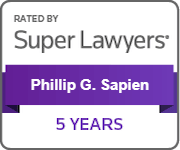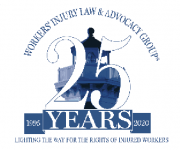Post Traumatice Stress Syndrome aka PTSD
Auto Crashes may cause PTSD
According to a study published on the American Family Physician, about nine percent of all people who are involved in auto collisions which is approximately 3.5 million people in the United States every year develop Post Traumatic Stress Disorder (PTSD) as a result.
WHAT IS POST TRAUMATIC STRESS DISORDER?
Post-Traumatic Stress Disorder, or PTSD, is a common mental disorder that can develop after experiencing or witnessing a life-threatening event. It is important to note that everyone experiences PTSD differently, and that symptoms of PTSD develop after varying amounts of time for everyone. The US Department of Veteran Affairs lists four (4) common symptoms for people suffering from PTSD, which are:
· Re-living the event. It is common for people with PTSD to have flashbacks of the life-threatening event over and over again. These flashbacks can sometimes be triggered by certain actions or by being in certain areas.
· Avoiding certain actions that remind you of the event. After a crash, you may have a very difficult time talking about the crash, and will likely have difficulty driving or entering a car after the crash.
· Experiencing negative feelings or beliefs. Your behavior and mood may change after a traumatic event. You may experience a sense of helplessness, numbness, or find it difficult to be happy. You my stop participating in activities that you previously enjoyed, or feel like the world has become a more dangerous place.
· Hyperarousal. You may feel very anxious or jittery after a crash. You may find it hard to concentrate and will constantly be on the lookout for danger. This behavior may also result in unhealthy lifestyle choices such as substance abuse or antisocial behavior.
OTHER SYMPTOMS OF PTSD CAN HAVE A SEVERE IMPACT ON YOUR DAY-TO-DAY LIFE
· Sleeping problems. Not only difficulty sleeping, but also sleepwalking, night terrors, and constant fatigue.
· Anxiety, depression and chronic pain. It is common for people with PTSD to feel anxiety or be depressed about their situation or to blame themselves for a situation that was outside of their control.
· Trouble at work and maintaining relationships. People with PTSD may have a hard time communicating and focusing after a crash that impairs their ability to work and connect with other people.
TREATMENT FOR PTSD
It is important to seek medical attention for PTSD as soon as possible. Many treatments are available for people with PTSD. These include psychotherapy and certain kinds of medication. If your PTSD is left untreated, your symptoms may worsen and cause other symptoms to arise or take longer to resolve.
Two types of cognitive behavioral therapy have had success with PTSD recovery.
1) Cognitive Processing Therapy (CPT), which allows you to understand how the trauma has changed you as a person. Changing how you think about the event that led to your PTSD can help change the feeling you have as a result.
2) Prolonged Exposure (PE) in which you talk about your trauma over and over again and slowly begin to become comfortable with the topic. This may also help you control your thoughts and feelings regarding your traumatic experience.
Recovery from PTSD varies depending on the person and the severity of the case. In some cases, the symptoms of PTSD disappear completely, while some people with PTSD learn to cope even while their symptoms persist.
PTSD is a serious illness and may have a significant impact on your life. However, help is available for those who recognize that they have PTSD. If you suffer from PTSD, the first step you should take is to receive help from a medical professional. You may also be able to receive compensation for lost income and loss of income earnings capacity, psychological pain and suffering, and ongoing treatment if your PTSD arose from an auto crash or other traumatic event.








